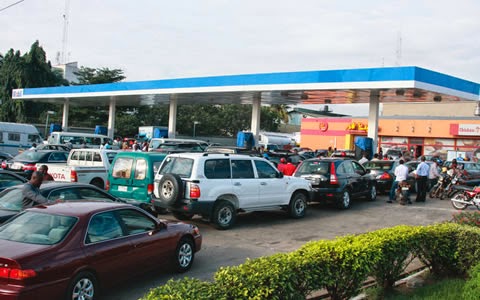For the umpteen times in the year, residents of Lagos are facing a shortage in the availability of fuel for personal and commercial use. With many filling stations shut across the state, long queues have resurfaced since Tuesday with residents waiting in lines to purchase the products.
Why this is happening
The National Controller, Operations, of the Independent Petroleum Marketers Association of Nigeria (IPMAN), Mike Osatuyi, said in an interview that members of the association could not get sufficient products at the depots. He said “DAPPMAN sold it to us at N200/N202 per litre. By the time we transport it to our stations, the cost would be around N210/litre.”
Meanwhile DAPPMAN’s Chairman, Dame Williams Akpani, during a chat with The PUNCH said that the fuel crisis was because of logistics challenges, including bad roads.
In other news, Olufemi Adewole, Executive Secretary of the Depot and Petroleum Products Marketers Association said earlier in the week that the new tax regime proposed by the federal government could shut down businesses and restart fuel scarcity crisis. And just hours later, long queues resurfaced in Lagos, Nigeria’s largest commercial city.
Adewole said, “Petroleum marketers operate at a very low margin, but the turnover is very huge. Unfortunately, the margin does not correspond with the turnover.”
He added that the Finance Act 2020 mandates oil marketers to pay 0.5 percent of their gross turnover at the end of the year.
“It is unimaginable that probably, half of the petroleum marketing firms existing now may go under if the new tax regime is implemented, except the regulator, which is the Nigerian Midstream and Downstream Petroleum Regulatory Authority, approves a new margin for the marketers.”
The big picture
Fuel scarcity doesn’t just represent a cut in the number of cars on the roads, it means a disruption in the smooth conduct of residents’ businesses. Fuel scarcity also means an increase in the cost of transportation. And with the festive season approaching, the effect of this crisis could be astronomical on prices of goods and services.
In case you missed it
- The last time there was fuel scarcity in Nigeria was in February 2022 when the Nigerian National Petroleum Corporation (NNPC) imported 170.25litres of adulterated fuel from suppliers in Europe. In that time, black marketers sold PMS at over N400 per litre.
- In July, long queues reappeared in the country despite the federal government boasting of having 2.65 billion liters of fuel in storage.

